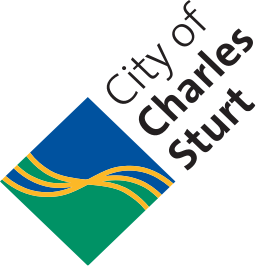Noise and other local nuisances can disrupt your enjoyment of our vibrant City.
New legislation (the Local Nuisance and Litter Control Act 2016, here known as the Act) came into effect on 1 July 2017. It helps us manage local nuisances.
What is a local nuisance?
Under the Act, a local nuisance is described as "any adverse impact on the amenity value of an area, which unreasonably interferes with, or is likely to unreasonably interfere with, the enjoyment of that area by people in that area."
It may include noise, odour, smoke, dust, vibration, or insanitary or unsightly conditions.
Local noise nuisance can originate from residential, commercial or industrial sources including:
- construction activities
- demolition and concrete pours
- air conditioning units
- pool pumps and spas
- events and festivals
- generators
- power tools
- machinery
- mowers, leaf blowers and mulchers
- rubbish collection
- street and street tree maintenance
Reduce the impact of noise
- Use noisy appliances as far as possible from neighbouring premises.
- Communicate noise activity and duration with neighbours.
- Power tool use is allowed within 8am and 8pm Monday to Saturday, and within 9am and 8pm any Sunday or public holiday.
- Street maintenance and rubbish collection is limited to 7am to 7pm Monday to Saturday and 9am to 8pm any Sunday or public holiday.
- Construction noise is limited to 7am to 7pm Monday to Saturdays.
- In all cases, we take several factors into account, like the level, nature or extent of the noise. This can include volume, pitch, vibrational frequency, prevalence or frequency of occurrence.
These elements can constitute unreasonable interference of persons occupying neighbouring premises.
If a nuisance is emanating from an industrial premises, it may be a site that is licensed by the Environment Protection Authority (EPA) and therefore not within the council’s jurisdiction. These matters can be referred directly to the EPA.
Excess smoke can increase the levels of air pollution and lead to poor air quality.
Smoke disturbance can include:
- wood heaters
- backyard burning
- combustion heaters
- extraction units
Here are our hot tips to avoid excessive smoke:
- Use dry, seasoned, untreated wood. The wood should make a 'crack' when struck together, not a 'dull thud'.
- Stack wood under cover in a dry ventilated area.
- Use small logs and ensure air can circulate freely when in the heater.
- Burn the fire brightly. Run the heater on a high burn rate (air control fully open) for 5 minutes before and 15 to 20 minutes after adding wood.
- Don't let your heater smoulder overnight. Keep the air control open enough to maintain a flame. A well insulated house will stay warmer longer.
- Regularly check the chimney of the heater to monitor for excessive smoke
- Clean your flue or chimney at least once a year to remove tar and soot build up. This will increase the heat of your fire and reduce smoke emissions.
Odour disturbance can come from:
- poor waste management or dirty bins
- compost heaps or food scraps
Reducing odour disturbance
- Manage your waste properly.
- Learn about composting and mulching to avoid odours.
- Ensure bins are put out each week.
- Clean bins regularly.
- Maintain proper storage of paints or chemicals.
Dust disturbance can include:
- construction
- demolition
- landscaping
- land clearing
Reducing dust disturbance
- Be mindful of weather conditions (eg schedule works when there is low wind).
- Construct barriers to contain excess dust.
- In dry conditions, use water to contain dust on topsoil.
- Littering and illegal dumping are crimes that cost Council time and money.
- We have a range of legal waste management services in the City of Charles Sturt.
- Learn more about the penalties of illegal dumping and how to report a crime.
- Council does not have authority to address other nuisance activities not covered in the act.
- People noise including music and voices from domestic premises. Refer to SAPOL on 131 444.
- Activities involving liquor licensed premises. Refer to the Liquor Licensing Authority on 131 882.
- Noise from vehicles (other than vehicles operating within, entering or leaving business premises).
- Activities controlled by an Environment Protection Authority (EPA) SA licence, phone 8204 2004.
- Noise or other nuisance from animals living in their natural habitat.
- Noise or other nuisance from sporting or associated activities at sporting venues.
- Noise associated with a school, kindergarten, childcare centre or place of worship.
How to deal with a Local Nuisance
If you're bothered by a local nuisance, there are steps you can take to resolve the issue.
Speak to the person
In the first instance, speak to the person or group causing the problem. In many instances, they may not even realise that what they are doing is a nuisance. Often a simple conversation makes the party aware of the issue and can encourage them to take heed.
Reporting a nuisance
If you are unsuccessful in resolving the issue through conversation, we can support you and take action if necessary.
Call Community Safety on 8408 1111 or email council@charlessturt.sa.gov.au
Exemptions
The Act allows Councils to consider granting an exemption from local nuisance-causing activities. These exemptions involve strict conditions to minimise the impact of the nuisance.
Section 19 Local Nuisance and Litter Control Act 2016.
Current exemptions:
| APPLICANT | EXEMPTION LOCATION | EXEMPTION PERIOD | THE ACTIVITY |
|---|---|---|---|
